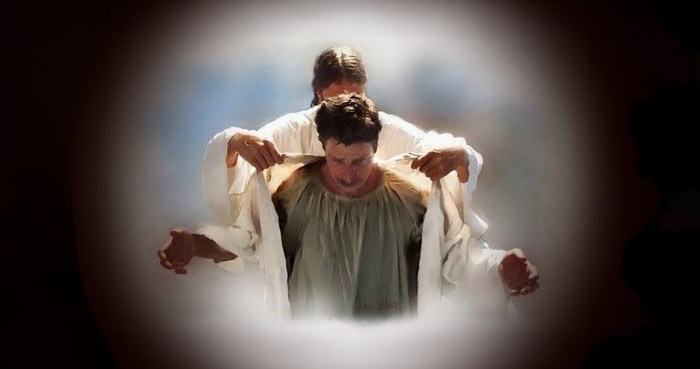Ephesians 4:24
And that ye put on the new man, which after God is created in righteousness and true holiness.
These two attributes are rather hard to separate, so we have put them together for the purpose of this study. Righteousness, in its basic meaning, is something that is straight without any deviation. But holiness is more in the realm of being separate, set aside for something special.
Holiness is an attribute that man must have if he is to see the Lord Heb. 12:14. Those who stand before God in love must be holy and without blame, Eph. 1:4. These high standards of God's requirements are a source of despair for the Christian. All believers in the Roman church had sinned and come short of the Glory of God. Can anyone do better?
In fact, such a requirement makes it absolutely impossible for anyone in the flesh to have access to God or to stand before Him. In the flesh, no believer has anything to commend him to God. Isaiah summed it up by saying that all the righteousnesses of God's people were but filthy rags in the sight of God Isa. 64:6. We are not considering the unbeliever.
Again, in Col. 1:22, we find that the work of reconciliation was to present believers as holy and unblameable and unreproveable in the sight of God. If that is true, then we have a wonderful hope. What we could not possibly do, the Son has done. That any man ever could approach God by virtue of his own works or worth denies that the eyes of God cannot behold evil or look upon iniquity Heb. 1:13.
Col. 1:12 shows that we are not fit in ourselves to be partakers of the inheritance of the Holy of holies in the Shekinah glory. We have to be made fit or meet for that glorious inheritance. Not by works of righteousness that we have done, but solely by His mercy has He saved us Tit. 3:5.
Further along this line, we find in Col. 2:10 that those who are saints are complete in Christ, i.e., filled to the full. This is where we find the true and required righteousness and holiness.
And not only for individuals is this work done, but also it has been accomplished for The Church of The Dispensation of The Mystery, The Body of Christ. We discover in Eph. 5:25-27 that Christ loved The Church and gave Himself as a sacrifice for it in order that He might sanctify and cleanse it, so that it will be glorious, not having spot or wrinkle; but holy and without blemish of any kind.
The saint has made a great trade, a transaction in which he has gained every advantage. His sins were imputed to Christ, Who died for them. In turn, the righteousness of Christ has been imputed to the saint like a wedding garment given to a guest: The saint stands clothed in the righteousness of Christ!
From this, we must conclude that when the Father looks upon the saint, He sees the righteousness and holiness of His Dear Son. That is why He has given all judgment to The Son. He Himself does not look under or beyond that garment of righteousness. That is the Son's prerogative. That has to do with our state, our correction, and our rewards.
No righteousness or holiness can come from the deeds of the law or the works of the flesh. So, we have to turn from our works to the work of Christ.

